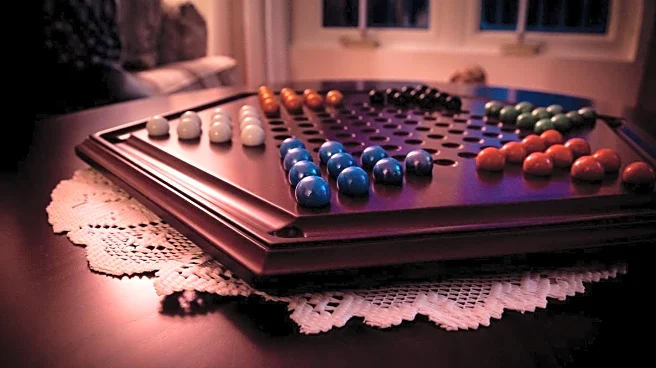What's Happening?
The world's first Ouija board museum, located in Salem, Massachusetts, explores the history of the popular paranormal game. The museum, opened by John Kozik, delves into the origins of Ouija boards, which outsold Monopoly in the U.S. in 1967. The spiritualist
movement in America, which began in the mid-1800s, is credited with the game's popularity, as many people were affected by death due to the Civil War. The museum offers insights into the cultural fascination with Ouija boards and their role in American history.
Why It's Important?
The Ouija board museum highlights the enduring cultural interest in paranormal phenomena and spiritualism in the U.S. It reflects a broader societal fascination with the supernatural and the ways in which historical events, such as the Civil War, have shaped cultural practices. The museum serves as a unique tourist attraction, drawing visitors interested in the history and mystery of Ouija boards. This interest in the paranormal can influence entertainment, literature, and media, as well as tourism in locations known for their supernatural associations.
What's Next?
The museum may continue to expand its exhibits and educational programs, attracting more visitors and researchers interested in the history of spiritualism and paranormal games. The growing interest in supernatural phenomena could lead to increased tourism in Salem and other locations associated with paranormal history. Additionally, the museum's success may inspire similar attractions in other cities, further promoting cultural exploration of the supernatural.
Beyond the Headlines
The museum's focus on Ouija boards and spiritualism reflects broader cultural and psychological interests in the unknown and the afterlife. It raises questions about how historical events influence cultural practices and beliefs, and how these interests are expressed in modern society. The museum's popularity may also indicate a societal desire to explore and understand the mysteries of life and death.















